Can You Trust Your GPS?
By Dag Pike
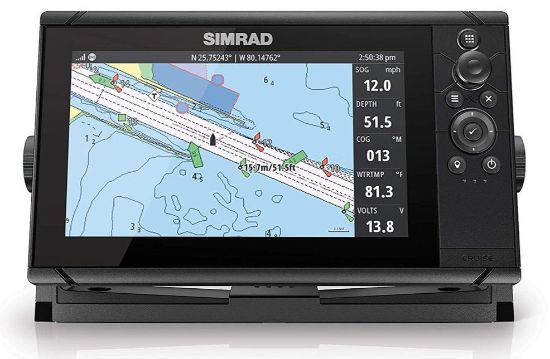
I was brought up to navigate using a compass, a watch and a sextant in combination with a chart. Most of the time, we coped. In those days, you had to coax position information out of the system. But at least, in the main, you were not dependent on external sources for information.
I still find myself being in wonderment about using GPS where you get an accurate position on demand with virtually no effort on my part, except to spend money on buying the necessary receiver. I can also get those positions on my phone or a dedicated handheld receiver and they are automatically plotted on the chart.
Hard to Believe
GPS seems almost too good to be true. I still pinch myself to find that I can know where I am to within a few feet if necessary. The tiny chip that does all this is no bigger than my fingernail. But, it is incredibly reliable and so we believe every number that it says. Maybe that is where the problem lies. It presents its information in such a precise way that there is no room for argument and no room for discussion or negotiation.
This is where you are and you had better believe it. But, for someone who has been brought up to question every position and its level of accuracy, GPS is hard to believe and even harder to trust.
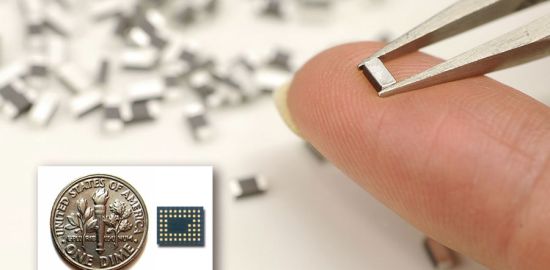
There can only be a few people left who do not go to sea with a GPS chart plotter these days, and it just makes things so easy. You know precisely where you are all the time, and you can see what is around you on the electronic chart display. As far as navigation is concerned, there should be no possibility of going wrong.
When Things Go Wrong
So, we rely heavily on GPS, but what happens if it goes wrong? GPS has such a long history of providing reliable service that very few of us even contemplate a failure of GPS. But it can, and it does happen. It could be a failure of your particular equipment on board, the power supply could fail, or the antenna gives up.
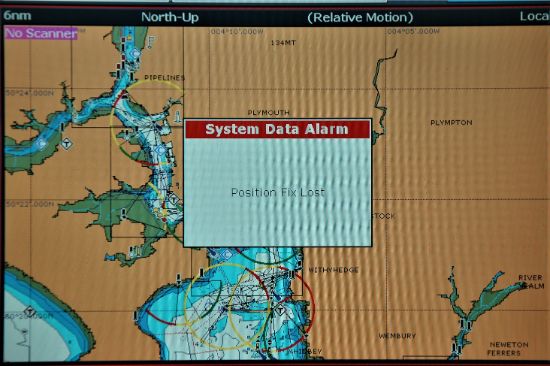
Coping with Failure. Such failures are easy to cope with by simply carrying a handheld GPS with its battery power supply. This should be essential equipment on any yacht. A much more serious situation arises if the GPS itself goes down because then that handheld unit will not work either.
“But surely GPS is a military system and it cannot be allowed to fail?” you might ask. That is the case, but there are now external factors that can and do influence the availability of GPS. Jamming and spoofing are relatively new threats to GPS and I don’t think we have seen the possibilities of these threats to their full extent. You might think that alternative satellite systems coming on stream will provide back-up.
Russians are Coming. The most advanced is the Russian Glonass system that is already up and running and to follow there is the European system Gallileo and a Chinese system so there should be no shortage of alternatives to supplement GPS. There are now receivers available that can produce positions from all of these systems so there is plenty of satellite back-up but is that enough?
Weak Signals
These alternatives may help but both jamming and spoofing could affect all of these satellite systems at the same time because they all work on radio frequencies that are close together. The GPS signal from those distant satellites is very weak when it reaches the earth’s surface and it is so weak that it has been likened to looking at a 100-watt electric light bulb from 100 miles away.
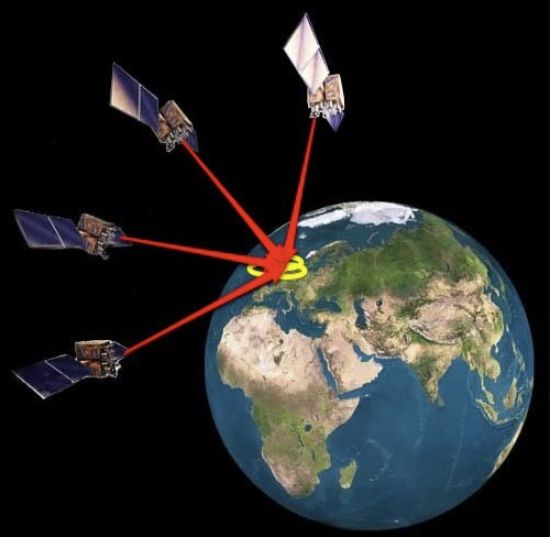
Interference. Any weak signal like this can be affected by other stronger signals in the vicinity. This type of jamming could be intentional or unintentional but what is sure is that jamming of the GPS signal is a very real possibility and could lead not only to GPS failure but also to error positions which could be even more dangerous to navigation.
Jamming could be enabled as a terrorist weapon but it can also come from navigating close to a powerful transmitter. For example, I have found that GPS will not work in the bay outside Rapallo in Italy where there is a powerful aircraft beacon on the hill above Portofino.
We found this when a major electronics manufacturer chose this location to demonstrate its new equipment and there was embarrassment all-round when there was no GPS available. There seems little doubt that interference with the GPS signal is a distinct possibility and for the navigator the problem is what to do about it.
Accidental Jamming
Then there is accidental jamming, so picture the scene. You are entering harbor when the visibility is poor and concentrating on your electronic chart display because you have not picked up the channel markers yet. Then the GPS goes down and the alarm sounds. You are left struggling to sort out alarms and at the same time looking ahead to desperately sight the harbor entrance. You don’t have any back-up and you are struggling to know what is going on and how to cope.
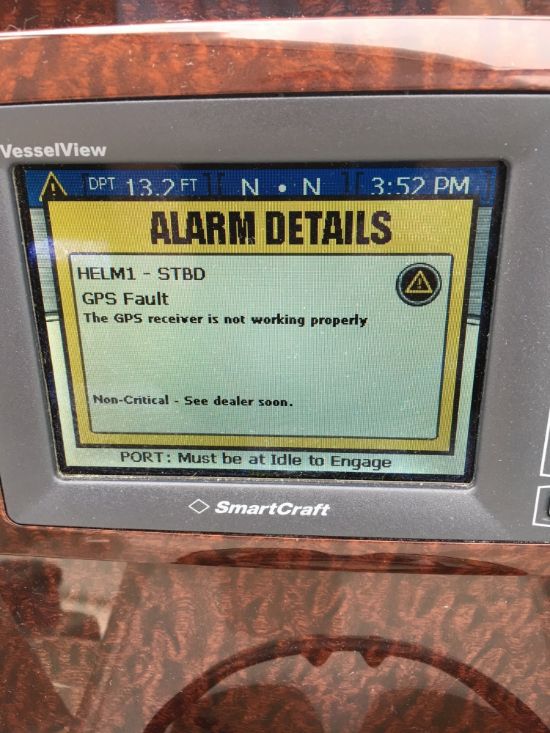
In our harbor entrance scenario, the GPS going out could happen, not because of a failure of the GPS but because there are people out there who use GPS jammers because they do not want to be found. This is a land-based problem and it stems from businesses that fit GPS trackers to their vehicles so that they know where they are at all times.

Maybe you are the driver of one of these vehicles and you want to take half an hour off for a rest or other reasons, but you don’t want the boss to know. You find a quiet spot with a nice sea view, switch on the jammer and nobody knows where you are. Car thieves also use jammers so they can’t be tracked.
Not Selective Jamming. Unfortunately, that jammer is not selective, and it will jam the signal from reaching any GPS in the vicinity. That is why, for yachts, this type of GPS jamming could be found in harbor entrances because your man may have parked up in a quiet spot with a nice view over the harbor and he not only blanks out his GPS but also those around him, including the receivers onboard yachts nearby.
A new source of GPS jamming comes from those who want to prevent drones flying in their vicinity. The jammers used for this can have a range of up to 1 km and often include GPS jamming in their capabilities.
Jamming Devices
That is the generous view of GPS jamming when it is accidental or second hand but there can be a more serious aspect to it. There are bad guys out there who want to confuse and if you search the Internet you can find much more powerful GPS jammers for sale that could cause havoc when used in the wrong places.
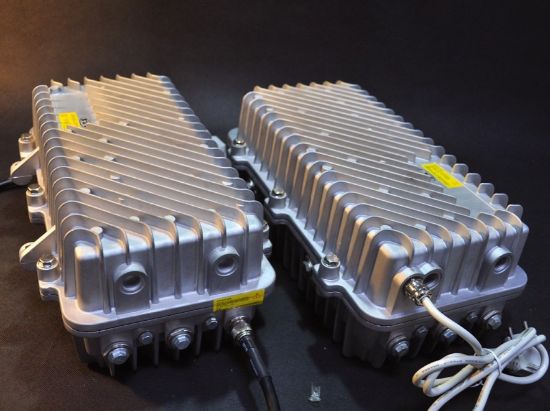
It is not illegal to have one of these jammers, but it is illegal to use one. The chances are that if one is used then it could affect GPS reception over quite a large area and although they are likely to be used on land the jamming signal could extend over the water.
Jamming is a Real Issue
In the UK at the port of Southampton, it is reported that between 8 and 11 GPS blockers are detected every day presumably from land-based jammers. It is claimed that such attacks could seriously impact navigation in many coastal and port areas.
Long Distances. The problem stems from the strength of the GPS signal. This signal has to travel around 20,000 miles from the satellites and it is weak to start with so when it reaches earth it is little more than a whisper in strength. This means that it does not take a very strong competing signal to prevent the GPS signal reaching your receiver.
It would be nice to think that any earth-based signal competing with GPS would be accidental but these days there are too many bad guys out there who might want to disrupt things.
Reducing the Impact
So, what can you do to prevent loss of GPS signals or at least reduce the impact if they are disrupted? The GPS receiver manufacturers take steps in their antenna design and their electronic systems to try and reduce any impact. Raymarine says it incorporates anti-jamming features into their system and take the GPS signal of two different frequencies to reduce the risk. Navico includes jammer detectors into their systems and fine-tunes the frequencies to both detect and eliminate jamming.

It is a complex area because of the weakness of the GPS signal but antenna design can also come into the equation. For good GPS accuracy, satellites that are higher in the sky, say above 40° tend to give the best results. Any jamming signal is likely to originate at ground level so fitting a shield around the GPS antenna to prevent low angle signals being picked up can also help.
Anti-Jamming Systems
Then there are dedicated anti-jamming units that can be incorporated into the antenna circuits. Specialist company Chemring has been heavily involved in the development of advanced anti-jamming systems for the military and now they have found a way to reduce both the cost and the size of anti-jamming units to make them suitable for commercial use. Their new unit, called Gincan, is based on the adaptive antenna concept used by the military systems.
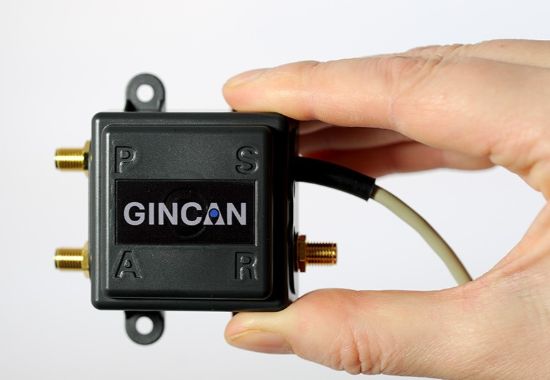
Loran Again? The potential disruption that could be caused by jamming is behind the demand for a back-up positioning and timing system. E-Loran is an enhanced version of the old Loran system that has been closed down in both the US and Europe. It can provide accuracies close to those of GPS. Because it operates on hard-to-jam long wavelength frequencies, it is far less vulnerable to jamming. It has been mandated to be established around the US, but there seems to be a distinct lethargy about implementing the systems.
In Europe, there is no such enthusiasm. The prospect of getting international agreement to fund an upgraded system seems as remote as ever. The EU has invested billions in its Galileo satellite system and sees no reason to spend more on a back-up.
If we do get the E-Loran system up and running as a backup, it then poses the dilemma of what do you do if the two systems, GPS and e-Loran, show different positions. Which one do you believe? You need three separate systems so that the majority wins. While that is far-fetched, it is wise to bear in mind that when operating a vessel, you are the one responsible for the ship.
Paper charts, anyone?
Having a Back-Up
So, for the yachtsmen, the best solution is to use GPS when it is available. But be aware that it could let you down in a critical situation. Nothing beats plotting DR (dead reckoning) positions and looking out ahead as a solution like we used to do in the past. Radar can provide good position fixing information close to land as well. But it does mean plotting positions on the paper chart. These days, not all yachts are carrying paper, even if you know how to plot positions.
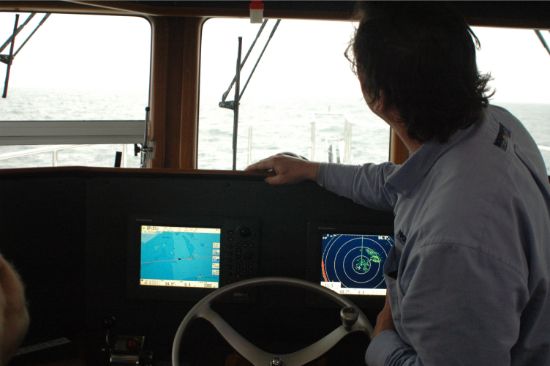
Check your chart plotter to see what happens if the GPS signal goes down. The handbook should help or just try disconnecting the antenna. You will probably get a cacophony of alarm signals from the chart plotter, the radar, and the auto-pilot if you do this. It can often be more of a challenge sorting out the alarms rather than sorting out your position. Many chart plotters will go into a dead reckoning mode to continue plotting. This is often time-limited because as time goes on, the positions will become less and less accurate.
Once you have established that it is the GPS signal that has failed you have to revert to traditional navigation methods and for many navigators brought up with GPS that can be a major challenge. Even for experienced navigators, it is not easy to revert to navigating with a paper chart and visual observations.
Of course, you can stop your boat to buy some time to work things out. Hopefully, you have been recording positions every hour or so, so you have some sort of datum to work from. Out in the open sea, a failure of the GPS may be more of an inconvenience. But if you are in the middle of navigating a narrow channel at night and relying on GPS, you could be in trouble very quickly.
It might be a good idea to try disconnecting the GPS antenna when you are out at sea just to see what happens. At least then you will have some experience with failure. Hopefully, you will have been able to work out some way to cope. GPS is a wonderful tool for the navigator, but be prepared for its failure.